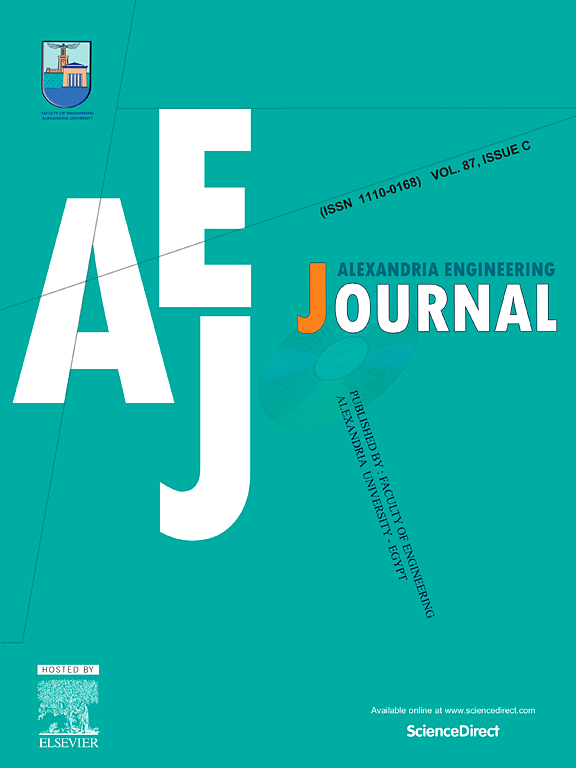Enhanced healthcare using generative AI for disabled people in Saudi Arabia
IF 6.8
2区 工程技术
Q1 ENGINEERING, MULTIDISCIPLINARY
引用次数: 0
Abstract
Saudi Arabia’s Vision 2030 prioritizes advances in healthcare to improve accessibility, improve medical services, and support people with disabilities. Despite the adoption of telemedicine and AI-driven healthcare solutions, disabled and elderly people continue to face challenges in accessing real-time medical services, receiving accurate diagnoses and independently navigate healthcare facilities. Current healthcare systems often struggle with delays, lack of personalization, and inefficiencies in medical data processing, limiting their effectiveness in providing inclusive and responsive healthcare. To address these challenges, this paper proposes an AI-powered healthcare framework that integrates Generative Artificial Intelligence (GAI), Reinforcement Learning from Human Feedback (RLHF), and the Analytic Network Process (ANP). RLHF enables AI models to learn and adapt based on real-time user feedback, ensuring a personalized and interactive healthcare experience. Meanwhile, ANP optimizes decision-making processes, allowing for faster, more accurate medical service delivery by considering multiple healthcare factors. This combined approach improves remote consultations, intelligent diagnostics, and seamless real-time interactions, significantly improving accessibility to healthcare for disabled individuals. The proposed framework is evaluated against existing AI-driven healthcare models. Results demonstrate that the system outperforms traditional methods, providing a faster, more reliable, and patient-centered healthcare experience. By combining GAI, RLHF, and ANP, this research offers a practical solution to improve healthcare accessibility for disabled individuals, aligning with the goals of Saudi Arabia’s Vision 2030.
沙特阿拉伯为残疾人使用生成式人工智能加强医疗保健
沙特阿拉伯的《2030年愿景》优先考虑在医疗保健方面取得进展,以改善可及性、改善医疗服务并支持残疾人。尽管采用了远程医疗和人工智能驱动的医疗保健解决方案,但残疾人和老年人在获取实时医疗服务、获得准确诊断和独立使用医疗设施方面仍然面临挑战。当前的医疗保健系统经常面临延迟、缺乏个性化和医疗数据处理效率低下的问题,这限制了它们在提供包容性和响应性医疗保健方面的有效性。为了应对这些挑战,本文提出了一个基于人工智能的医疗保健框架,该框架集成了生成式人工智能(GAI)、基于人类反馈的强化学习(RLHF)和分析网络过程(ANP)。RLHF使AI模型能够根据实时用户反馈进行学习和适应,确保个性化和交互式医疗体验。同时,ANP优化决策过程,通过考虑多种医疗保健因素,实现更快、更准确的医疗服务交付。这种综合方法改进了远程咨询、智能诊断和无缝实时交互,显著提高了残疾人获得医疗保健的可及性。根据现有的人工智能驱动的医疗保健模型对拟议的框架进行了评估。结果表明,该系统优于传统方法,提供了更快、更可靠和以患者为中心的医疗保健体验。通过结合GAI、RLHF和ANP,这项研究提供了一个切实可行的解决方案,以改善残疾人的医疗保健可及性,与沙特阿拉伯2030年愿景的目标保持一致。
本文章由计算机程序翻译,如有差异,请以英文原文为准。
求助全文
约1分钟内获得全文
求助全文
来源期刊

alexandria engineering journal
Engineering-General Engineering
CiteScore
11.20
自引率
4.40%
发文量
1015
审稿时长
43 days
期刊介绍:
Alexandria Engineering Journal is an international journal devoted to publishing high quality papers in the field of engineering and applied science. Alexandria Engineering Journal is cited in the Engineering Information Services (EIS) and the Chemical Abstracts (CA). The papers published in Alexandria Engineering Journal are grouped into five sections, according to the following classification:
• Mechanical, Production, Marine and Textile Engineering
• Electrical Engineering, Computer Science and Nuclear Engineering
• Civil and Architecture Engineering
• Chemical Engineering and Applied Sciences
• Environmental Engineering
 求助内容:
求助内容: 应助结果提醒方式:
应助结果提醒方式:


